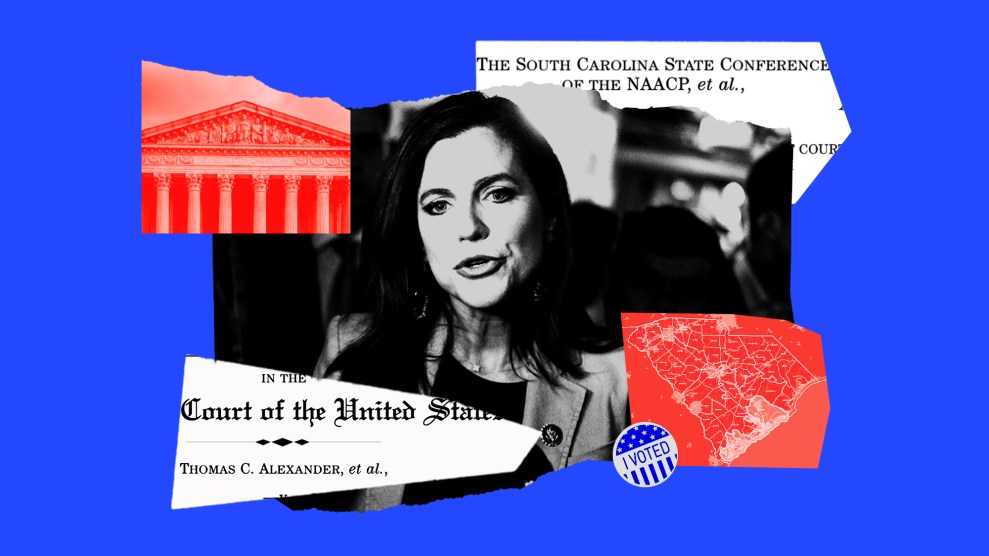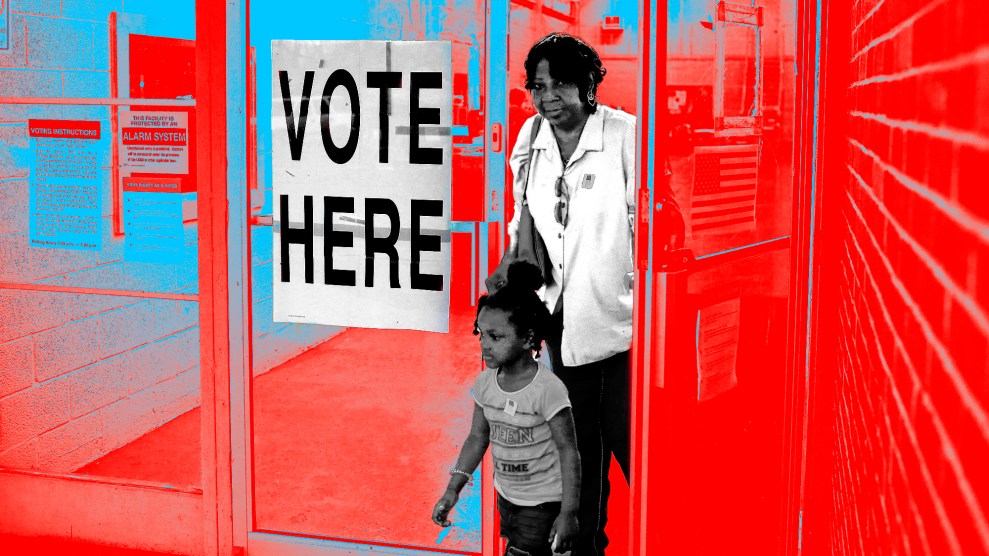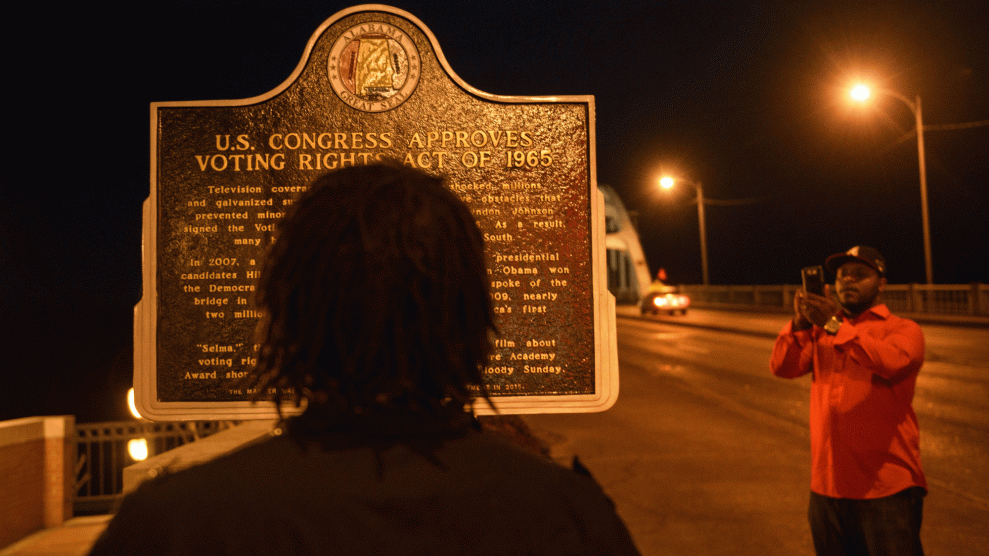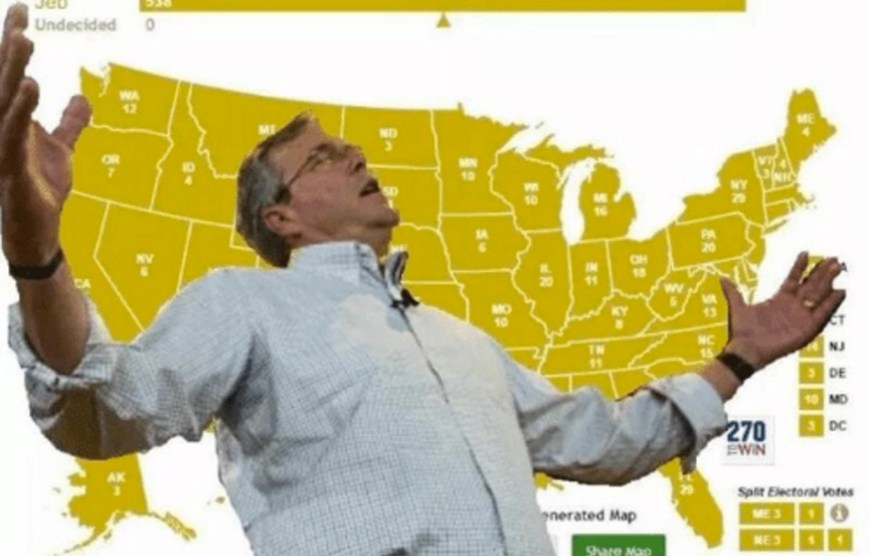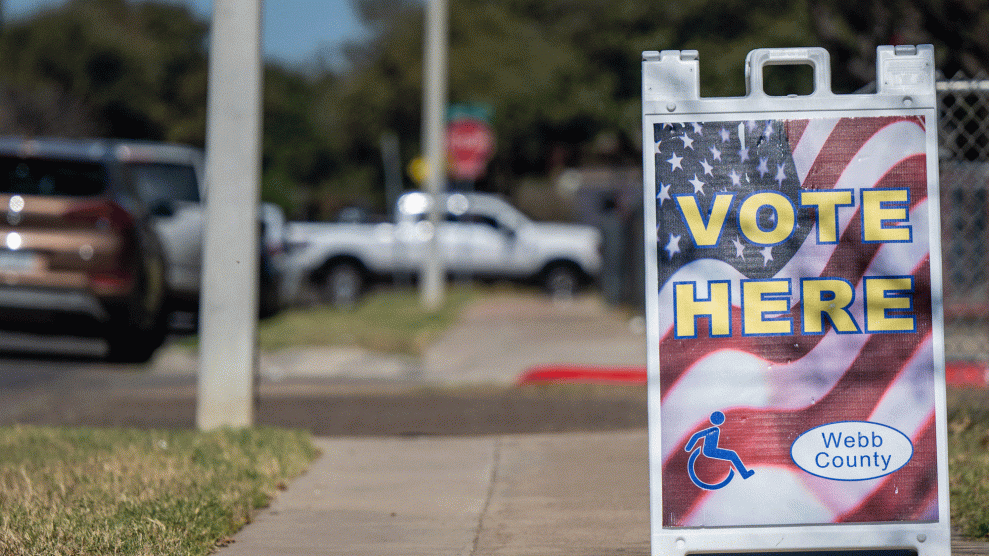
Brandon Bell/Getty
On Friday, a Trump-appointed federal judge struck down an electoral map in Galveston, Texas, saying it violates the Voting Rights Act and amounts to “egregious” discrimination against Black and Latino voters.
“This is not a typical redistricting case,” wrote Judge Jeffrey Brown in a 157-page ruling. “What happened here was stark and jarring…the enacted plan denies Black and Latino voters an equal opportunity to participate in the political process and to elect a candidate of their choice.”
The trial, which began in August, focused on how Galveston’s Republican commissioners redrew voting maps in 2021, breaking up the only precinct where Black and Latino voters made up the majority of the electorate. Their map would have effectively erased representation of people of color at the highest levels of local government in a county that is 45 percent non-white.
As my colleague Ari Berman wrote in 2021, the redistricting in Galveston “brought to mind the disenfranchisement of Black voters in the Jim Crow South,” with implications that extended beyond this single district.
What’s happening in Galveston isn’t an aberration, but part of a troubling trend that is playing out throughout Texas—and across the South—in which Republicans at all levels of state government are going to increasingly extreme lengths to preserve white GOP power by diluting the votes of communities of color in new maps drawn for the US House, state legislative seats, and local offices like county commission and city council districts.
Though the case concerns a county of 350,000 residents, it took on national prominence as the first trial under Section 2 of the 1965 Voting Rights Act since the Supreme Court affirmed the constitutionality of the section in a surprise ruling in June. The section, one of the last remaining pieces of the Voting Rights Act, prohibits racial discrimination in voting laws. As Berman reported:
Such a move would have been unthinkable and illegal before the Supreme Court gutted the Voting Rights Act in 2013, ruling that states like Texas and jurisdictions like Galveston County with a long history of discrimination no longer needed to approve voting changes and electoral boundaries with the federal government. As a result of that decision—and the failure by Democrats to overcome four GOP filibusters in order to pass federal legislation protecting voting rights and outlawing extreme gerrymandering, such as the Freedom to Vote Act and John Lewis Voting Rights Advancement Act—Republicans are erasing decades of long-fought gains for voters of color, returning parts of the South to a pre-1965 status quo where conservative whites have effectively denied political representation to previously disenfranchised communities of color and are preventing major demographic changes from leading to shifts in political power.
If the new Galveston voting map had been upheld, the county would likely have lost its sole Black commissioner, Stephen Holmes. “We are not going to go quietly in the night,” Holmes declared in 2021. “We are going to rage, rage, rage, until justice is done to us.”
Holmes told Berman, “It tells us that many of the same problems that eƒxisted before the Voting Rights Act of 1965 are still there.” He added, “Nothing has changed. You can’t trust certain places or people to do what’s right. You’ve got to watch them, hold their hand, and when they don’t do what’s right you’ve got to slap their hand down and push back on them. If you don’t, they’ll reverse the clock and turn it all the way back.”
Judge Brown ordered the county to redraw the map by October 20. Galveston County Judge Mark Henry, the county’s chief officer, says the county plans to appeal. “The County followed redistricting law and did not engage in any racial discrimination,” he wrote in a statement. “We believe this will be vindicated by the Fifth Circuit Court of Appeals. As County Judge, I have never lost a Voting Rights Act case on appeal.”

